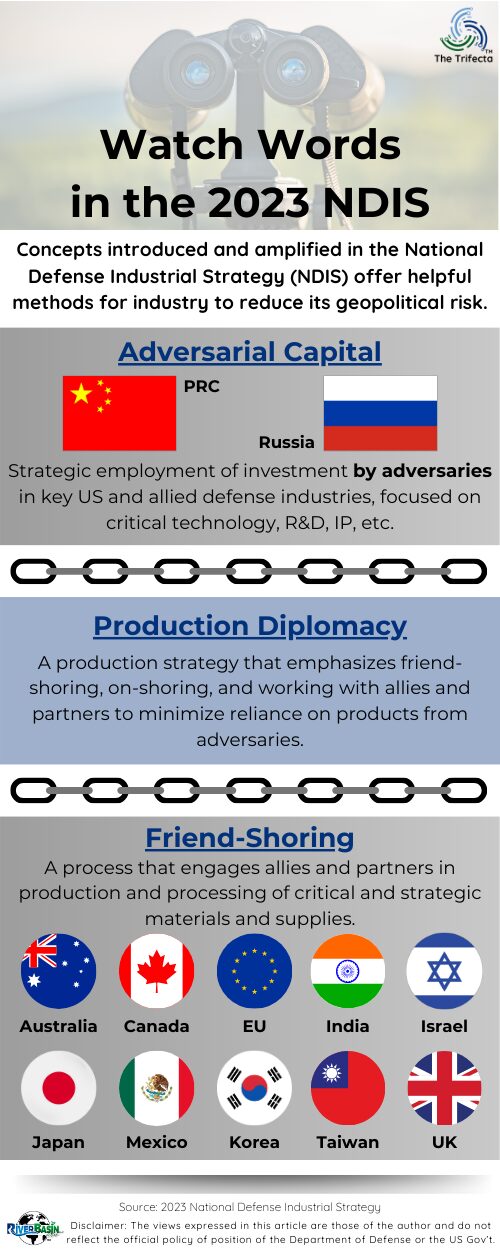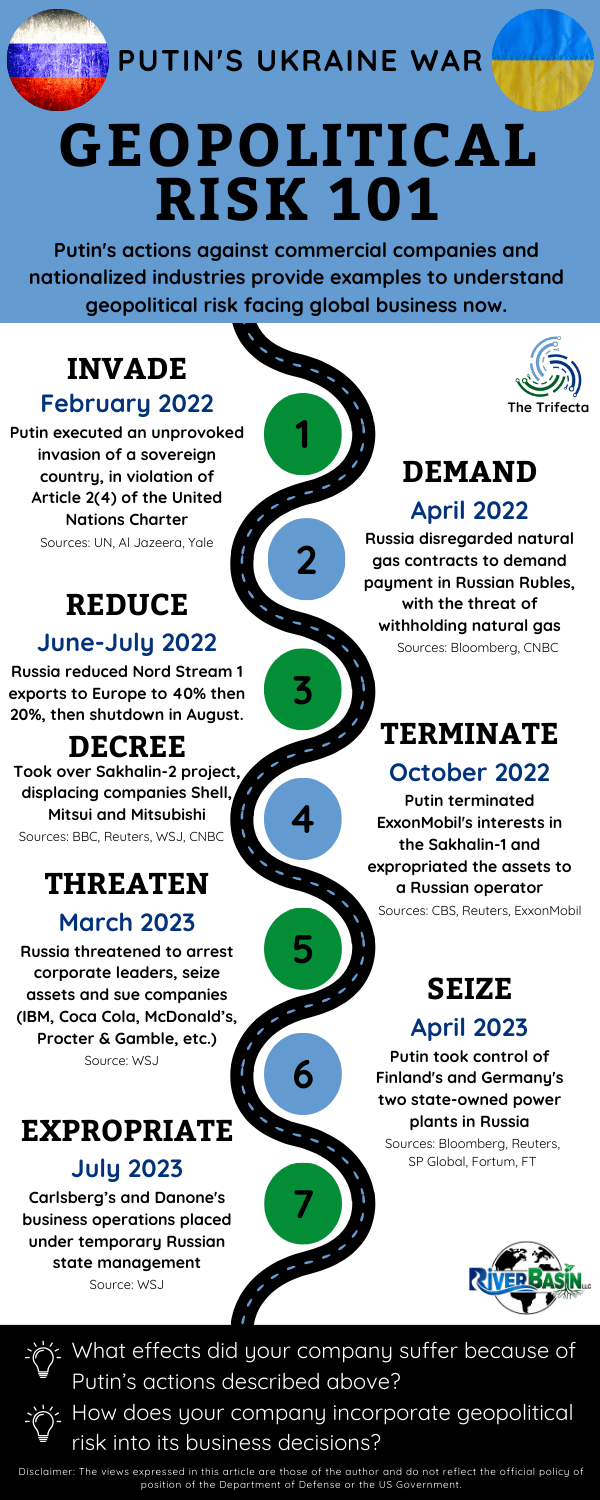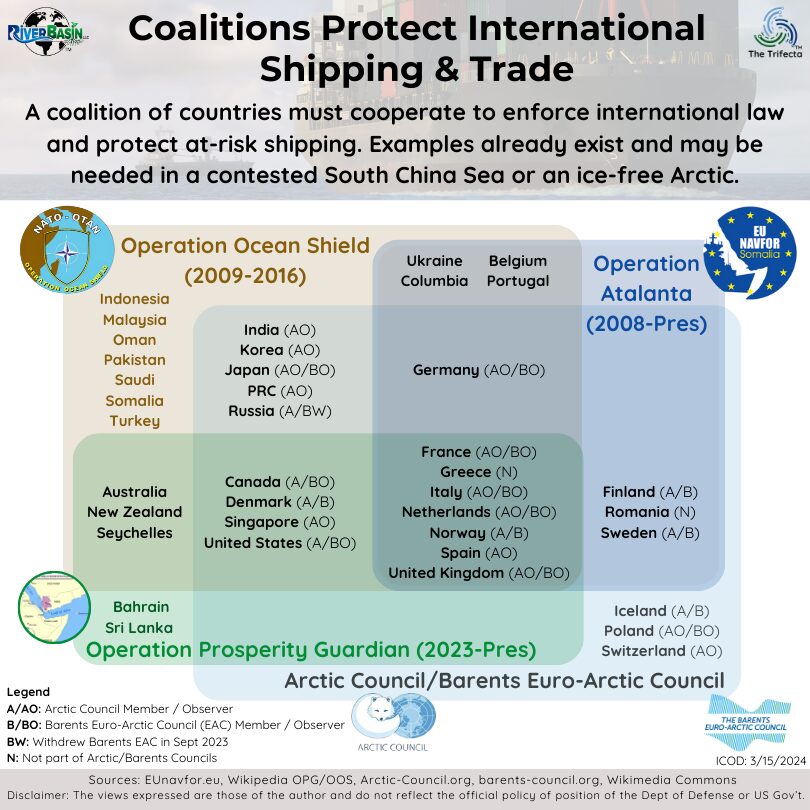
BLUF
Friend-shoring countries identified in the National Defense Industrial Strategy (NDIS) are 97% democratic and represent 48% of world democracies, according to the Economist Intelligence Unit’s (EIU) 2023 Democracy Index. The friend-shoring list did not include any authoritarian regimes.
Why does this matter?
Friend-shoring reduces geopolitical risk for energy companies. The NDIS defined it as “A process that engages allies and partners in production and processing of critical and strategic materials and supplies.” For companies, friend-shoring allows them to diversify their supply chains while promoting economic development in ally nations. This approach reinforces mutual interests, strengthens alliances, and fosters a more interconnected and resilient global economy.
Key Take-Aways
- 36 of 37 friend-shoring countries identified in the NDIS are flawed or full democracies, according to the 2023 EIU Democracy Index.
- Friend-shoring countries represent 48% of the world’s democracies.
- Countries not listed in the NDIS may still be attractive for business operations.
Disclaimers: The views expressed in this article are those of the author and do not reflect the official policy or position of the Department of Defense or the U.S. Government. The appearance of external hyperlinks does not constitute endorsement by the United States Department of Defense (DoD) of the linked websites. The DoD does not exercise any editorial, security or other control over the information you may find at these locations.
36 of 37 friend-shoring countries identified in the NDIS are flawed or full democracies, according to the 2023 EIU Democracy Index.
The EIU Democracy Index is based on 60 indicators that are split into five different categories. Categories are scored from zero to 10, with 10 being the highest. Based on the average of all five category scores, each country is assigned an overall score. The highest possible score is 10 and lowest possible score is zero.
Next, the overall score is tied to a type of regime. The EIU defines overall scores of 8.0 to 10.0 as a “Full democracy”, 6.0 to 8.0 as a “Flawed democracy” and 4.0 to 5.0 as a “Hybrid regime.” Countries with scores of zero to 4.0 are “Authoritarian regimes.”
The 2023 NDIS identified 37 countries as places to “Friend-shore” (noting the list was not exhaustive). Of the 37 friend-shoring countries, 17 have a full democracy, 19 have a flawed democracy and one has a hybrid regime. Future posts will unpack details contained within the five categories that comprise the overall score.
The prevalence of full or flawed democracy countries reflects the US government’s belief that industrial activities in these countries contain less risk than other countries.
Friend-shoring countries represent 48% of the world’s democracies.
When compared to EIU results across all countries in the world, friend-shoring countries represent a higher proportion of democracies than the global distribution.
- 46% of the friend-shoring countries have full democracies, compared to 14.4% throughout the world.
- 5% of the friend-shoring countries have flawed democracies, compared to 29.9% throughout the world.
In 2023, there were 74 total countries with either full or flawed democracies. 36 of those (48%) were included in the NDIS friend-shoring list.
Countries not listed in the NDIS for friend-shoring may still be attractive for business operations.
The NDIS acknowledged the list of friend-shoring countries was not exhaustive. A total of 24 countries were ranked as “full democracies” by EIU’s Democracy Index. Of those, 17 were included in the NDIS friend-shoring list.
Some notable “full democracies” were not included in this list. For example, the top three democracies according to EIU were Norway, New Zealand, and Iceland. Both Norway and Iceland are in the European Economic Area (EEA), but are not part of the EU. The NDIS listed the EU as a friend-shoring destination, not the EEA.
The other four “full democracies” not included were Switzerland, Uruguay, Costa Rica, and Mauritius. Switzerland is another non-EU country with close ties to the EU.
Current understanding of friend-shoring countries is limited to the information in the NDIS. Exclusion from the list should not, by itself, prevent companies from considering business in those countries. The goal of friend-shoring is to reduce reliance on adversarial or unstable nations for critical defense or strategic materials. By friend-shoring, industry reduces its geopolitical risk. The strategy prioritizes trust, cultural alignment, and geopolitical considerations over cost savings alone.

DOPSR 24-P-0511
Think About It...
- Which countries are your company’s primary production and processing partners? Are they on the friend-shoring list?
- How do your business practices incorporate a country’s government type when evaluating risks?
- What type of business operations do you conduct in friend-shoring countries?
- What part of your value chain presents the greatest risk to maintaining continuous operations?




